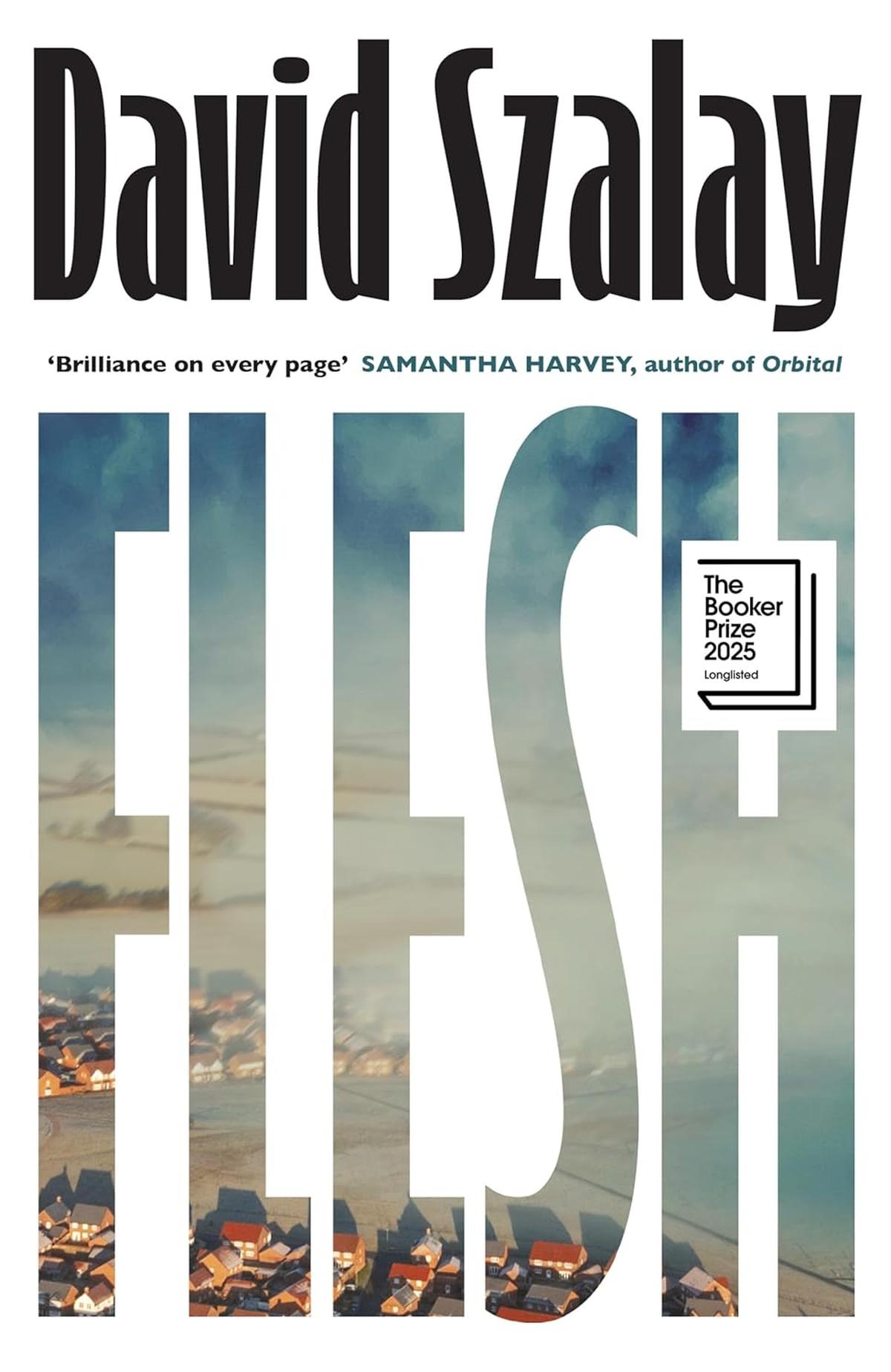Kafka in Budapest | Review of David Szalay’s Booker-longlisted novel, Flesh


By the Danube river in Budapest.
| Photo Credit: Getty Images
What sets apart David Szalay’s Flesh from the very outset is the way it carves atmosphere without any reference to time or place. We are in an unnamed city in an unnamed country. Nor is there any indication of the phase of human history we’re in beyond the presence of flats and supermarkets and schools. Local markers appear much later, in sparse, scattered ways. Why would a work of fiction want to delete traces of topical reality?
I’m reminded of something the author Amit Chaudhuri wrote, about the curious lack of place and even character names in one of Hindi writer Nirmal Verma’s “East European” stories: “By deleting certain fundamental specificities from his story, Verma is, paradoxically, denying it invisibility, and drawing attention to its midway state of being — its lack of location in any one canon or tradition.”
Is this what the Hungarian-British Szalay is doing here — seeking to place his protagonist within a universal, existential condition, and his novel outside a particular cultural tradition? Flesh, longlisted for this year’s Booker Prize, opens with the protagonist in the pronoun: “When he’s fifteen, he and his mother move to a new town and he starts at a new school.” Only at the bottom of the page do we get his name, István, which also happens to be a cultural marker.

It is more of a marker than the little things that denote the racial identity of Melanie Isaacs — the student violated by the professor David Lurie in J.M. Coetzee’s provocative novel, Disgrace — such as the nature of her hair. But few people who don’t know South Africa through intimate lived experiences will catch these details. Again, what impels — or emboldens — a novelist to do this?
Distinguished by failure
The very first word that indicates location in Flesh is “lángos”, on page 28: “They eat lángos while they wait for the bus back to the town.” Szalay’s novel has come to me serendipitously — shortly after I spend three months in Budapest. In the novel, the eating of lángos is not really an occasion — István and his companion eat it “while they wait for the bus”. It is a uniquely Hungarian street food, a deep-fried bread that reminded me of the Indian bhatura whenever I ate it in Hungary.
But the curiously vacant cultural confidence of this novel indicates places with colloquial ellipses. Such is how István suggests to Noémie, his cousin in whom he has an erotic interest, that they spend a day in “Balaton”, which is how a local would call what tourists are likely to call “Lake Balaton”, the largest natural lake in central Europe and a major summer attraction. This is the first firm indication of where the novel is set, quickly followed by the discovery of Hungarian metal tapes in the glove compartment, which indicate not only place but a general frame of time.

Author David Szalay
| Photo Credit:
thebookerprizes.com
The novel’s bravest attempt at universality is that it is about the life of an ordinary man, one not distinguished in any way, rather by failure by most standards of bourgeois success. It is neither striking nor adventurous, though towards the end, it is marked by a series of events that renders his life tragic. This is not the classical tragedy of the exceptional protagonist but the modern, existential tragedy of the ordinary citizen — not Aeschylus but Kafka.
A bare animal
A curious ellipsis also frames the part of his life that could have been adventurous — István’s military service in Kuwait — which has gifted him post-traumatic stress disorder and some attention from people curious about war. Ellipsis is not only a larger narrative strategy but it also frames the moment and the syntax. “István sits on a leather sofa, using an empty Red Bull can as an ashtray.” Neither here, nor anywhere in the vicinity are the words “smoking” or “cigarette” used, but they aren’t necessary for a novelist like Szalay.
What makes this disembodied novel so deeply sensory? It is, quite literally, flesh. Erotically evoked sexual situations and acts string together István’s life, often with the woman in a position of power over him — from the 42-year-old who initiates 15-year-old István into sex to the billionaire’s wife who starts an affair with him while he works as her chauffeur. The latter blooms into a genuine relationship which gives him a life that is snatched from him with the cruelty that matches the serendipity with which it arrived.
Back from this long and brilliant dream, our protagonist returns to where he started, reduced by tragedy to “the poor, bare, forked animal”, as in the searing words of King Lear on the raging heath.
The reviewer is the author of five novels, most recently, The Remains of the Body.
Flesh
David Szalay
Jonathan Cape
₹899
Published – September 19, 2025 06:15 am IST




